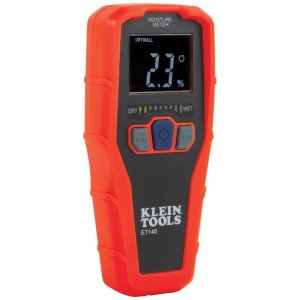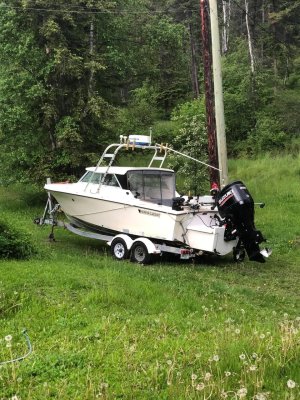the force
Crew Member
I’ve been back and forth with myself on this for a while, I’d love to hear some perspectives from those with more experience then I. Don’t want this to become an alum vs glass debate, eventually I want to alum but can’t stomach $150k (used) currently.
I had a 1976 glass campion for a while and am not adverse to fiberglass, and though I’m fairly risk tolerant I am always leary of rot. Boats that have caught my eye are mid 2000s and balsa cored, $50-80k… in my mind there has got to be a few screws or minor cracks where moisture has gotten through into the balsa. Can a marine surveyor actually/ effectively detect this? Or only if there is a large section that is all soft? I’ve heard mixed reviews.
I’ve read some horror stories (mostly C-Dory repairs). I’m in Kamloops so will be subject to freeze and thaw, would like to have it for 5-10 years. If I was confident that I wouldn’t need to sink $20k into fiberglass/core repairs I would likely go for it (I’m glad to do minor fiberglass work myself but don’t have 80hrs). When thinking about resale in 10 years (ie a 1990 hull today) I don’t get exicted…. I’m not as worried about the power, would repower if required, as long as the hull is competent.
I know this has likely been discussed multiple times, though I’m always impressed by the responses I get here from the crew.
I had a 1976 glass campion for a while and am not adverse to fiberglass, and though I’m fairly risk tolerant I am always leary of rot. Boats that have caught my eye are mid 2000s and balsa cored, $50-80k… in my mind there has got to be a few screws or minor cracks where moisture has gotten through into the balsa. Can a marine surveyor actually/ effectively detect this? Or only if there is a large section that is all soft? I’ve heard mixed reviews.
I’ve read some horror stories (mostly C-Dory repairs). I’m in Kamloops so will be subject to freeze and thaw, would like to have it for 5-10 years. If I was confident that I wouldn’t need to sink $20k into fiberglass/core repairs I would likely go for it (I’m glad to do minor fiberglass work myself but don’t have 80hrs). When thinking about resale in 10 years (ie a 1990 hull today) I don’t get exicted…. I’m not as worried about the power, would repower if required, as long as the hull is competent.
I know this has likely been discussed multiple times, though I’m always impressed by the responses I get here from the crew.


